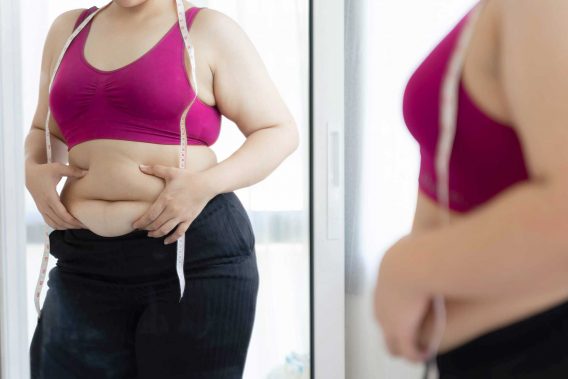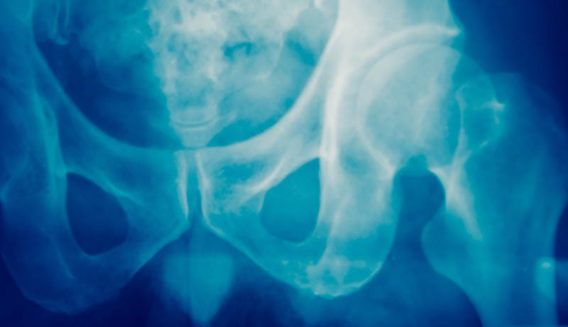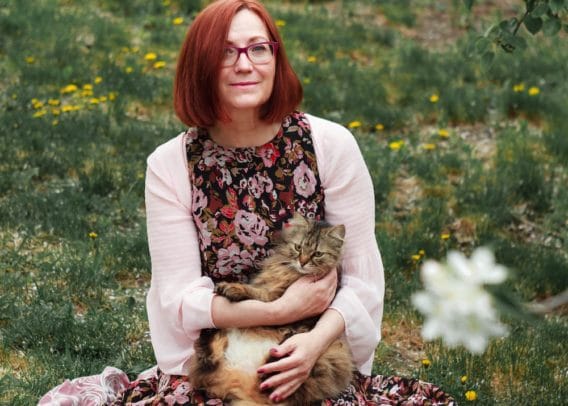
How Menopause Messes With Mood and Mental Health
Did you know that thousands of women suffer from mental health challenges during the meno years? The numbers are high, well over the 50% for issues like anxiety and depression. According

Did you know that thousands of women suffer from mental health challenges during the meno years? The numbers are high, well over the 50% for issues like anxiety and depression. According

Gut Feelings 💙 Q: I’ve got diarrhoea, could it be related to menopause? A: Yes, it could be. If you’re in pre-*, peri- or post-menopause and your gut’s playing up,

Menopausal weight gain often stems from hormone shifts – but not just the ones you’d expect. Estrogen and progesterone tend to steal the spotlight during perimenopause and post-menopause – and

Dear You, I need to talk to you about something I’m going through. It’s called menopause. And it’s making me experience all sorts of symptoms like hot flushes, night sweats

There’s an old saying ‘you can’t pick your relatives’ – you know that one right? It’s soooo true, but let’s not go there. The good news is that we can

Are you feeling irritable, crazy, sluggish, unmotivated, depressed, uptight or chubby? We hear you! Indeed, if you’ve landed here I’m guessing you’re older than 40. What’s more, I’ll wager that

If we could answer the question – what age does menopause start? – life would be very different for millions of women! But it’s a super-important question because it affects

How long does menopause last? So, how long’s a piece of string! Sorry, but it’s kinda how it rolls. And just to be clear when we talk about ‘the meno years’

We get lots of questions from you about peri/menopause so we’ve put eight of the most asked together. 1. What’s the difference between perimenopause, menopause and post-menopause? Most people, even

Today we’re going to talk about bones. And more specifically osteoporosis, because it’s something we all need to know about. Especially if we’re in pre-, peri- or post-menopause. If there’s

Great skin after age 40? Yes! As we enter the meno years, along with the mood swings and hot flushes can come massive changes in your skin. The drop in

Turning 50 heralds the beginning of a new life stage for women. It’s the point when our fertile years come to an end, and we move on to the next

Perimenopause. Aka peri. The lead-up to menopause is a time of confusion for many women. Because we’re woefully uneducated about the third part of our reproductive process. Indeed, I’m referring

Summer and stress? Yes indeed, you did read that right. Most of us love summer, the longer days, the balmy nights. But if you’re in your menopausal years, the summer

Heart disease is the biggest killer of women in the world and accounts for 35 percent of female deaths. And women in post-menopause are particularly vulnerable to heart disease. Eek! I know, right?

While the menopause conversation is opening up about menopause (hurrah!), decades of mystery have surrounded it. Consequently, lots of women have had more questions than answers. Not only that, historically

So many women ask us “how is perimenopause diagnosed?” And “is there a [reliable] test for perimenopause?” Because after all, how are you supposed to know if you’re in perimenopause?

Shining a light on mood, cognition and brain fog. Every year WMD falls on October 18. It was established in 1984 alongside World Menopause Month by the World Health Organisation

So many of you have asked us if breast cancer is more common during menopause. And the answer is yes, because one of the highest risk factors for a breast

When you’re learning about peri- and post-menopause some of your BFF’s are recommended books about menopause. The truth is not so long ago you would have been hard-pressed to find

When we talk about the symptoms of early menopause we need to differentiate it from usual menopause. Why? Because they present a different set of circumstances. What is menopause? Menopause

Yes, there’s a recognised biological process known as male menopause or andropause. Who knew, right? However, it should be noted that male menopause is controversial, and not all experts believe

Let’s talk about menopause and alcohol for a few minutes. One of the things we hear often from women who want help with perimenopause / menopause symptoms is: “I can’t

Body temperature fluctuations? Hot flushes? Today it’s all about them, one of the peskiest signs of menopause. Biochemist Peter Lehrke talks us through the science of hot flushes. Hot flushes
At MenoMe®, Menopause is our one & only game®. We live and breathe it – ’cause we’re going through it too or we’ve gone through it, and we totally get it! We’ve got your back and we promise to add a sprinkle of laughter to this rollercoaster ride!
Meno-Me Ltd
Unit 3/10 Makowhai Road,
R.D. 12, Hawera,
New Zealand.
Free call: 0508 MenoMe
Email: info@meno-me.com
Contact us here…
MenoMe®, LotsaLocks®, Merry Peri®, Perky Post®, Happy Go Tummy®, Women on Fire® , Mini Pause® and Menopause is our one & only game® are registered trademarks owned by Meno-Me Limited.
affron® is a registered trademark of Pharmactive Biotech Product, S.L.U.
keraGEN-IV® is a registered trademark of Keraplast Manufacturing.
Livaux® is a registered trademark of Anagenix IP Limited.
This is the time when menstruation is well and truly over, the ovaries have stopped producing high levels of sex hormones and for many ladies, perimenopause symptoms subside.
Estrogen has protective qualities and the diminished levels mean organs such as your brain, heart and bones become more vulnerable. It’s also a key lubricant so your lips may become drier, your joints less supple and your vagina might be drier. In addition, your thyroid, digestion, insulin, cortisol and weight may alter.
At this juncture, a woman might experience an increase in the signs of reduced estrogen but she should have a decrease of perimenopause symptoms. That said, some women will experience symptoms like hot flushes for years or even the rest of their lives.
Peri = ‘near’
Most females begin to experience the symptoms of perimenopause in their mid-forties. Your progesterone levels decline from your mid-30s but it’s generally from around 40 that the rest of your sex hormones begin to follow suit.
Perimenopause is a different experience for every woman and some women may barely notice it. The first indicators are usually changes to the monthly cycle. This means that for some ladies, this can be accompanied by things like sore breasts, mood swings, weight gain around the belly, and fatigue as time goes on.
For those with symptoms it can be a challenging time physically, mentally and emotionally.
Importantly, perimenopause lasts – on average – four to 10 years. The transition is usually a gradual process and many women enter perimenopause without realising.